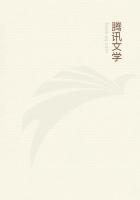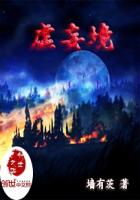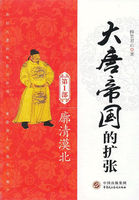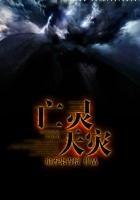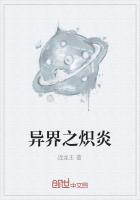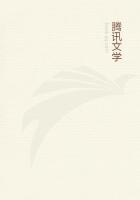Neither public measures nor private charity could meet the overwhelming need. In Normandy, where the last commercial treaty had ruined the manufacture of linen and of lace trimmings, forty thousand workmen were out of work. In many parishes one-fourth of the population[3] are beggars. Here, "nearly all the inhabitants, not excepting the farmers and landowners, are eating barley bread and drinking water;" there, "many poor creatures have to eat oat bread, and others soaked bran, which has caused the death of several children." -- "Above all," writes the Rouen Parliament, "let help be sent to a perishing people . . .. Sire, most of your subjects are unable to pay the price of bread, and what bread is given to those who do buy it " -- Arthur Young,[4] who was traveling through France at this time, heard of nothing but the high cost of bread and the distress of the people. At Troyes bread costs four sous a pound -- that is to say, eight sous of the present day; and unemployed artisans flock to the relief works, where they can earn only twelve sous a day. In Lorraine, according to the testimony of all observers, "the people are half dead with hunger." In Paris the number of paupers has been trebled; there are thirty thousand in the Faubourg Saint-Antoine alone. Around Paris there is a short supply of grain, or it is spoilt[5]. In the beginning of July, at Montereau, the market is empty. "The bakers could not have baked"if the police officers had not increased the price of bread to five sous per pound; the rye and barley which the intendant is able to send "are of the worst possible quality, rotten and in a condition to produce dangerous diseases. Nevertheless, most of the small consumers are reduced to the hard necessity of using this spoilt grain." At Villeneuve- le-Roi, writes the mayor, "the rye of the two lots last sent is so black and poor that it cannot be retailed without wheat." At Sens the barley "tastes musty" to such an extent that buyers of it throw the detestable bread, which it makes in the face of the sub-delegate. At Chevreuse the barley has sprouted and smells bad; the " poor wretches," says an employee, "must be hard pressed with hunger to put up with it." At Fontainebleau "the barley, half eaten away, produces more bran than flour, and to make bread of it, one is obliged to work it over several times." This bread, such as it is, is an object of savage greed; "it has come to this, that it is impossible to distribute it except through wickets." And those who thus obtain their ration, "are often attacked on the road and robbed of it by the more vigorous of the famished people." At Nangis "the magistrates prohibit the same person from buying more than two bushels in the same market." In short, provisions are so scarce that there is a difficulty in feeding the soldiers; the minister dispatches two letters one after another to order the cutting down of 250,000 bushels of rye before the harvest[6]. Paris thus, in a perfect state of tranquility, appears like a famished city put on rations at the end of a long siege, and the dearth will not be greater nor the food worse in December 1870, than in July 1789.
"The nearer the 14th of July approached," says an eyewitness,[7]
"the more did the dearth increase." Every baker's shop was surrounded by a crowd, to which bread was distributed with the most grudging economy. This bread was generally blackish, earthy, and bitter, producing inflammation of the throat and pain in the bowels.
I have seen flour of detestable quality at the military school and at other depots. I have seen portions of it yellow in color, with an offensive smell; some forming blocks so hard that they had to be broken into fragments by repeated blows of a hatchet. For my own part, wearied with the difficulty of procuring this poor bread, and disgusted with that offered to me at the tables d'h?te, I avoided this kind of food altogether. In the evening I went to the Café du Caveau, where, fortunately, they were kind enough to reserve for me two of those rolls which are called flutes, and this is the only bread I have eaten for a week at a time."But this resource is only for the rich. As for the people, to get bread fit for dogs, they must stand in a line for hours. And here they fight for it; "they snatch food from one another." There is no more work to be had; "the work-rooms are deserted;" often, after waiting a whole day, the workman returns home empty-handed. When he does bring back a four-pound loaf it costs him 3 francs 12 sous;that is, 12 sous for the bread, and 3 francs for the lost day. In this long line of unemployed, excited men, swaying to and fro before the shop-door, dark thoughts are fermenting: "if the bakers find no flour to-night to bake with, we shall have nothing to eat to-morrow." An appalling idea; -- in presence of which the whole power of the Government is not too strong; for to keep order in the midst of famine nothing avails but the sight of an armed force, palpable and threatening. Under Louis XIV and Louis XV there had been even greater hunger and misery; but the outbreaks, which were roughly and promptly put down, were only partial and passing disorders. Some rioters were at once hung, and others were sent to the galleys. The peasant or the workman, convinced of his impotence, at once returned to his stall or his plow. When a wall is too high one does not even think of scaling it. -- But now the wall is cracking -- all its custodians, the clergy, the nobles, the Third-Estate, men of letters, the politicians, and even the Government itself, making the breach wider. The wretched, for the first time, discover an issue:
they dash through it, at first in driblets, then in a mass, and rebellion becomes as universal as resignation was in the past.
II.
Expectations the second cause. - Separation and laxity of the administrative forces. - Investigations of local assemblies. - The people become aware of their condition. - Convocation of the States-General. - Hope is born. The coincidence of early Assemblies with early difficulties.



